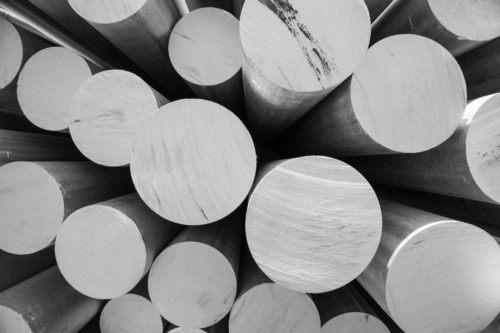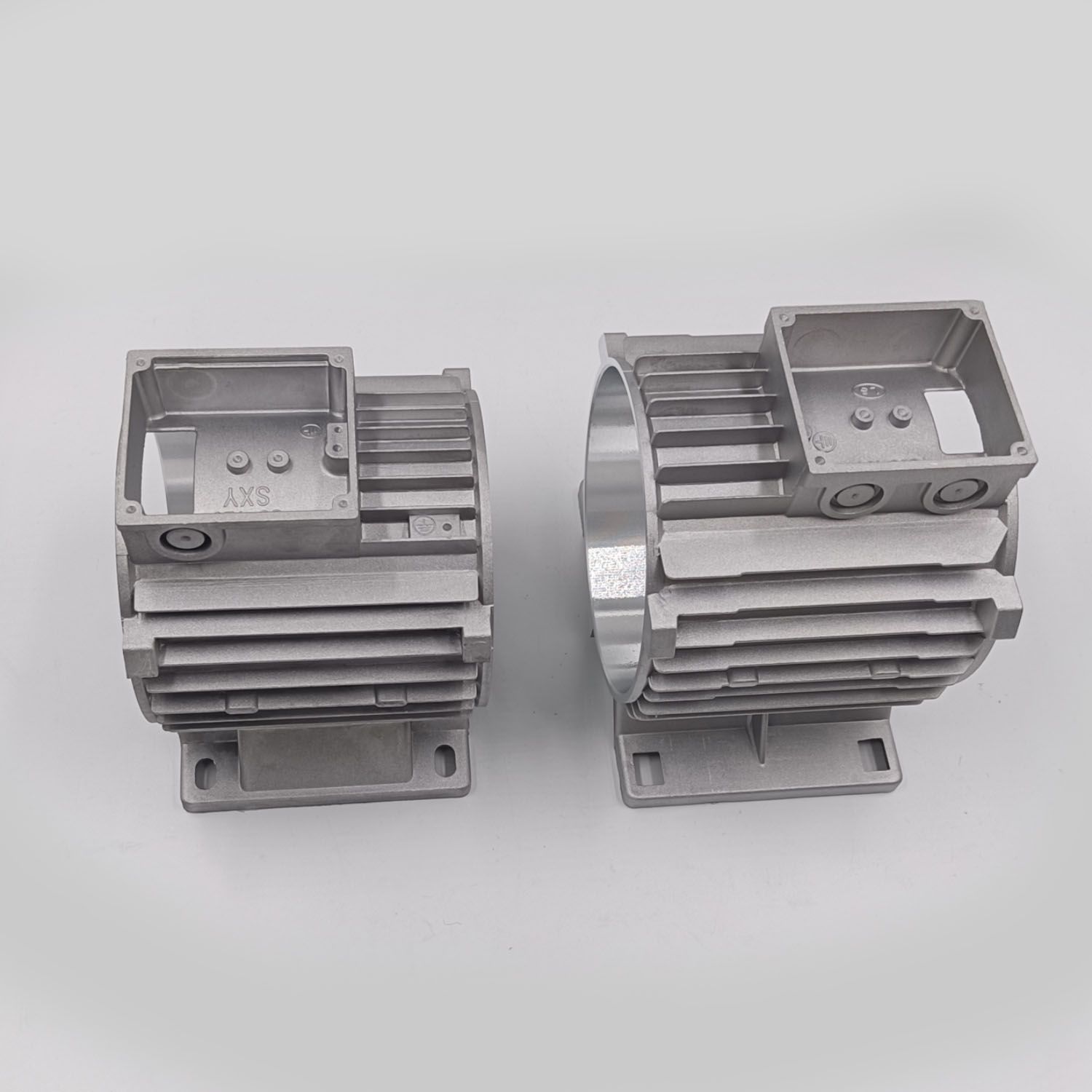See This Report on Stahl Specialty Company
See This Report on Stahl Specialty Company
Blog Article
The Stahl Specialty Company Statements
Table of Contents5 Easy Facts About Stahl Specialty Company ExplainedSee This Report on Stahl Specialty CompanyGetting My Stahl Specialty Company To WorkSome Known Incorrect Statements About Stahl Specialty Company Rumored Buzz on Stahl Specialty CompanyFacts About Stahl Specialty Company Uncovered

If you're developing a steel product, you've likely considered utilizing aluminum as the base product. It has a high strength-to-weight proportion, excellent corrosion resistance, great formability, and aesthetic appeal. These variables have brought about its raised popularity in recent times. Pure aluminum has actually restricted applications, so it is commonly incorporated with other elements, such as silicon, magnesium, and manganese to develop alloys.
Various elements and quantities generate a wide array of desirable physical and chemical homes. And the Aluminum Organization (AA), based in The United States and copyright, has developed specifications that control light weight aluminum alloys' make-up, properties, and language. There are two kinds of light weight aluminum alloys functioned and cast. Shop workers create these alloy key ins different methods, which considerably affects their characteristics.
The 10-Second Trick For Stahl Specialty Company
Cast aluminum alloys are made by melting pure aluminum and incorporating it with various other metals while in fluid form. After that the mix is poured right into a sand, die, or financial investment mold and mildew. After solidification, the steel is removed from its mold. At this stage, it remains in either its final kind or as a billet or ingot for additional processing.

As an example, 160.0 represents a cast with a minimum of 99.60% light weight aluminum. The fourth figure, which follows the decimal factor, specifies if the alloy is a casting (xxx. 0) or an ingot (xxx. 1). Wrought aluminum alloys also start by incorporating molten aluminum with other steels. As opposed to cast alloys, nonetheless, they are developed into their last form through processes such as extrusion, rolling, and flexing after the metal has solidified into billets or ingots.
There are numerous minor distinctions between wrought and cast light weight aluminum alloys, such as that cast alloys can consist of more substantial amounts of other metals than wrought alloys. But the most noteworthy difference in between these alloys is the fabrication procedure whereby they will certainly most likely to deliver the final item. In addition to some surface area treatments, cast alloys will certainly leave their mold in nearly the precise strong form wanted, whereas wrought alloys will go through numerous adjustments while in their strong state.
If you assume that a functioned alloy might be the finest for your job, have a look at a few of our posts that discuss more about particular functioned alloys, such as Alloy 6061 and Alloy 6063. On the various other hand, if you believe a cast alloy would be much better for you, you can find out more concerning some actors alloys in our Alloy 380 and Alloy 383 posts (coming quickly).
The Basic Principles Of Stahl Specialty Company
When selecting an aluminum shop for your production demands, it's critical to examine a number of factors. Among one of the most critical aspects to take into consideration is the experience and proficiency of the factory. Foundry. Choosing a factory that has the ideal understanding of the aluminum casting process, and the portfolio to show for it, assists to have a successful result for your project
Having the experience and sector understanding to engineer your spreadings for optimum production and high quality end results will streamline the job. Producing light weight aluminum spreading needs a complicated collection of procedures to accomplish the appropriate results. When selecting a new light weight aluminum shop to companion with, guarantee they have considerable industry experience and are experienced concerning all elements of the light weight aluminum casting process: style, production, product analysis, and product screening.
The foundry should additionally have a tried and tested performance history of providing exceptional products that meet or go beyond customer assumptions. Quality control needs to likewise be at the top of your listing when picking a light weight aluminum factory. By dealing with a qualified shop who follows the requirements for quality control, you can protect the integrity of your product and ensure it meets your requirements.
By picking a business that provides solutions that fulfill or surpass your product needs, you can be sure that your job will be finished with the utmost precision and performance. Various components require various production methods to cast light weight aluminum, such as sand spreading or pass away casting.
The Main Principles Of Stahl Specialty Company
Pass away spreading is the name provided to the procedure of developing complicated metal components via use molds of the component, additionally known as dies. The procedure utilizes non-ferrous metals which do not include iron, such as aluminum, zinc and magnesium, because of the desirable residential or commercial properties of the steels such as low weight, higher conductivity, non-magnetic conductivity and resistance to rust.
Pass away spreading manufacturing is fast, making high manufacturing levels of elements very easy. It creates even more elements than any kind of other procedure, with a high level of precision and repeatability. To get more information about die spreading and die spreading products used while doing so, continued reading. There are 3 sub-processes that drop under the group of die spreading: gravity pass away casting (or permanent mold and mildew spreading), low-pressure die spreading and high-pressure die casting.
Despite the sub-process, the die casting procedure can be broken down right into six steps. After the pureness of the alloy is evaluated, dies are produced. To prepare the dies for casting, it is essential that the dies are tidy, to make sure that no deposit from previous manufacturings stay. After cleaning, the ejection lubrication is put on the die to make sure a smooth launch.
Stahl Specialty Company Can Be Fun For Everyone
The pure steel, additionally referred to as ingot, is contributed to the furnace and maintained the molten temperature of the metal, which is then transferred to the shot chamber and infused into the die. The stress is then kept as the steel strengthens. Once the metal solidifies, the cooling process starts.
(https://medium.com/@franceshoward64061/about)
The thicker the wall of the component, the longer the cooling time due to the quantity of interior steel that also requires to cool. After the element is totally cooled, the die cuts in half open and an ejection system presses the component out. Complying with the ejection, the die is shut for the next injection cycle.
The flash is the added material that is cast throughout the procedure. This must be cut off using a trim device to leave simply the major component. Deburring gets rid of the smaller items, called burrs, after the cutting process. The part is address polished, or burnished, to provide it a smooth finish.
The Main Principles Of Stahl Specialty Company

Zinc is one of the most secondhand alloys for die casting due to its reduced price of raw products. Its corrosion resistance additionally permits the parts to be lengthy lasting, and it is one of the extra castable alloys due to its lower melting point.
As discussed, this alloy is one of the most typically used, yet produces will, at times, select aluminum over zinc because of aluminum's manufacturing advantages. Light weight aluminum is highly economical and one of the extra functional alloys. Light weight aluminum is utilized for a number of various products and industries anything from home window frameworks to aerospace products.
Report this page